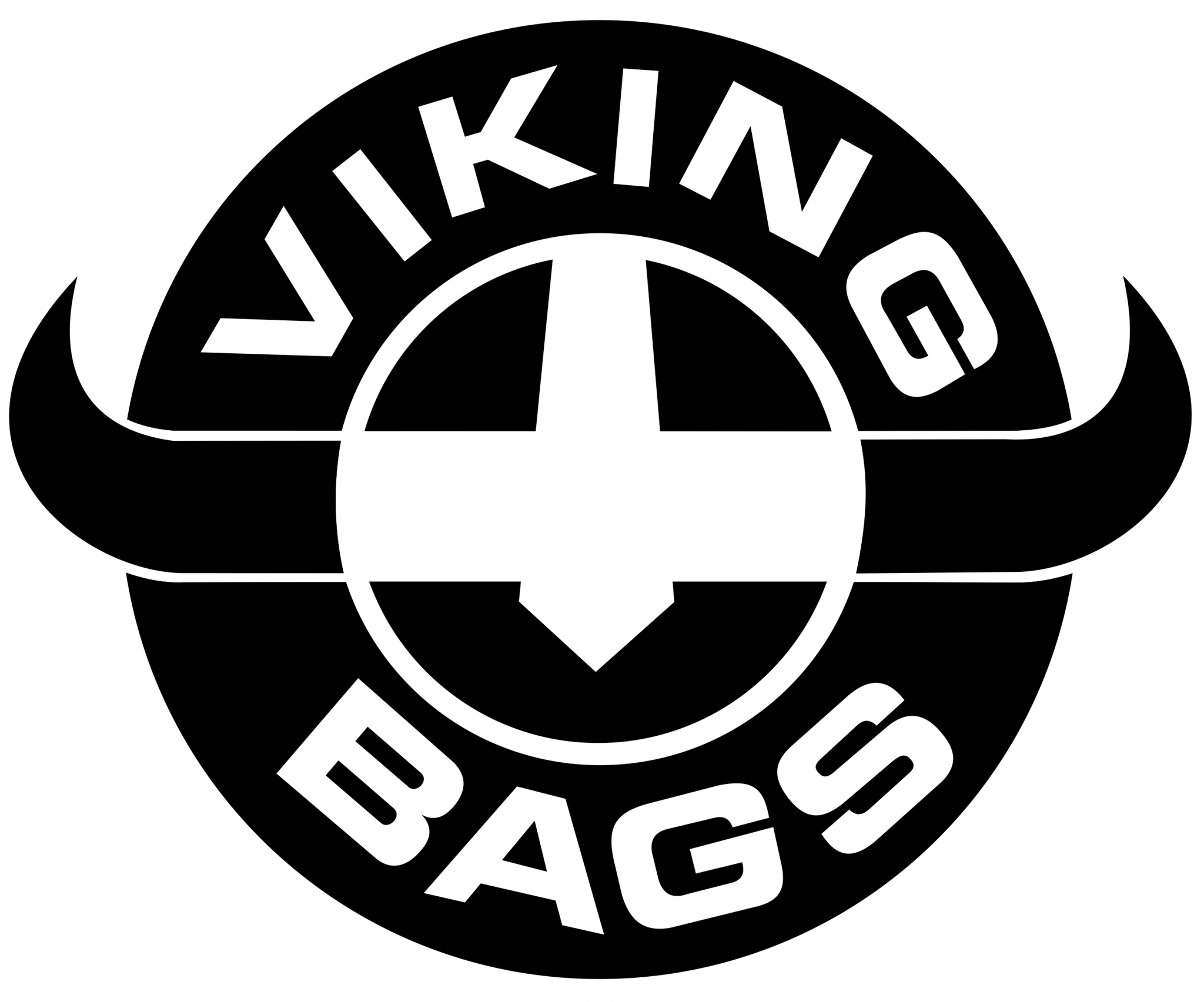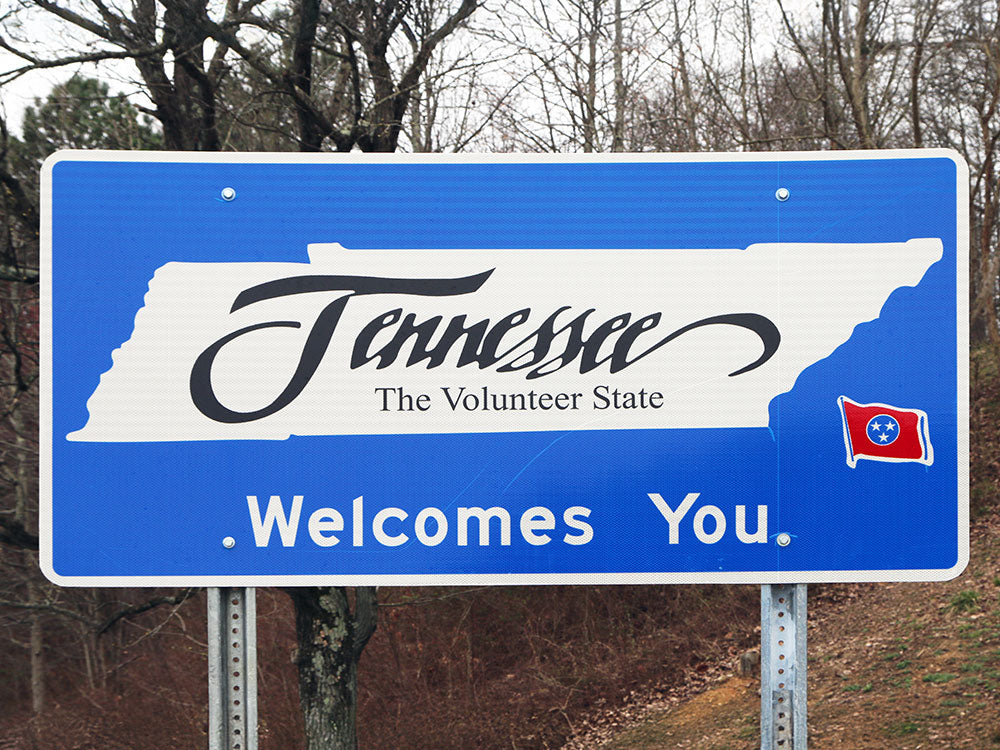Table of Content
1. Introduction
When operating a motorcycle, the goal you become fixated on is getting to your intended destination as quickly and smoothly as possible. But there are other immediate concerns such as being mindful of traffic, following the stoplights and keeping an eye out for police patrolling. However, all of these factors will not matter if you do not first become familiar with the motorcycle laws and licensing process. Much like every other state in the United States, Tennessee has its specific list of rules that motorcyclists need to follow.
2. Tennessee Motorcycle Insurance

You may not need Tennessee motorcycle insurance to purchase a motorcycle, but you are required to have it by the time you are ready to begin traveling across Tennessee. If you get into an automobile accident, you must have proof that you can be financially responsible. Especially if you are found liable, you will have to provide compensation to other parties that were involved in the accident. Make sure to carry proof of ownership, as you must be able to show it at traffic stops, accident scenes, and vehicle inspections.
Motorcycle insurance that you get in Tennessee or outside of the state has to be able to provide coverage for bodily injuries and property damages:
$25,000 for bodily injury to a person per accident
$50,000 for bodily injuries to multiple people per accident
$15,000 for property damages sustained per accident
If you wish for coverage that deals with complex situations revolving around accidents, you may need to include these kinds of insurance:
Uninsured coverage
Underinsured coverage
Collision coverage
Comprehensive coverage
Medical payment coverage
Bodily injury coverage
3. Tennessee Motorcycle Helmet Laws

Tennessee requires that riders and passengers alike have a three-quarter or full-face helmet on at all times.
Even though motorcyclists must have protective headgear, some riders have insisted on operating their vehicles without it. The statistics in recent years have shown the need for motorcycle helmets to help prevent further fatalities in the future:
In 2017, there were a total of 134 motorcycle fatalities. Only 123 of the riders were wearing motorcycle helmets
In 2018, the highest number of motorcycle fatalities ever in Tennessee was recorded that year with 168 deaths. Only 57 of the riders were wearing motorcycle helmets
In 2019, there were a total of 152 motorcycle fatalities. Only 130 of the riders were wearing motorcycle helmets
According to the Centers for Disease Control and Prevention, motorcycle helmets reduce the risk of fatal injuries by 37% and reduce the risk of severe injuries by 69%
Either a three-quarter or a full-face must have been made with quality materials by the Snell Memorial Foundation and satisfies the safety guidelines set by the U.S. Department of Transportation. If you are looking for a motorcycle helmet, make sure that they have the following features:
| Requirements | Three-Quarter Helmet | Full-Face Helmet |
|---|---|---|
| Has the Department of Transportation (DOT) sticker | ✔️ | ✔️ |
| Contours around your head to fit snugly due to comfort padding | ✔️ | ✔️ |
| No signs of damage Ex:// cracks, loose padding, scratches, or frayed straps | ✔️ | ✔️ |
| Has a face shield with no scratches | ❌ | ✔️ |
| Includes separate eye protection with no scratches Ex:// goggles, glasses | ✔️ | ❌ |
| Has a hard and durable outer shell that is shatter-resistant | ✔️ | ✔️ |
| Has an impact-absorbing liner inside the helmet | ✔️ | ✔️ |
| Gives you a clear, peripheral view of your surroundings | ✔️ | ✔️ |
| Securely fastened with neck- or chin-strap | ✔️ | ✔️ |
| Allows airflow without fogging up | ✔️ | ✔️ |
| Can allow you to wear sunglasses underneath | ✔️ | ✔️ |
4. Tennessee Motorcycle License Laws
4.1 Tennessee Motorcycle Learner’s Permit
If you have already passed your 15th birthday, you are then legally allowed to collect a Tennessee motorcycle learner’s permit.
You will have to pay a $6.50 fee to be issued a Tennessee motorcycle learner’s permit that allows you to operate for one year before you need to renew. If you applied when you were 15, you can exchange for a motorcycle license without taking any tests upon turning 16 years old.
If you want to have a permit that is valid in Tennessee, you must complete the following tasks and fulfill all of the listed criteria:
Present identification documents
Provide proof of Tennessee residency
Provide proof of U.S. citizenship
Provide your Social Security Number
Pass the knowledge exam
Pass the vision exam
Pay the required fees
Because there are dangers on the street and drivers cannot distinguish an experienced rider from a novice, those in possession of the Tennesse learner’s permit have to operate only under the following circumstances:
Can only operate a motorcycle with a maximum cylinder size of 650 ccs
You cannot carry passengers
You can only operate during daylight hours
You cannot ride on interstates or roadways otherwise marked
Can only operate within a 20-mile radius of your current place of residence
4.2 Tennessee Motorcycle License & Endorsement
If you have already passed your 16th birthday, you are then legally permitted to obtain a Tennessee motorcycle license.
You will have to pay a $29 fee to be issued a Tennessee motorcycle license that is valid for eight years, or you can pay a $55 fee to be issued a Tennessee driver’s license with a motorcycle endorsement.
Listed below are the requirements you will need to fulfill to obtain a Tennessee motorcycle license or endorsement:
| Requirements | Applicants Ages 15 to 17 | Applicants Ages 18 and Above |
|---|---|---|
| Have a valid Tennessee driver’s license | ✔️* | ✔️* |
| Complete a Motorcycle Safety Foundation (MSF) course | ✔️* | ✔️* |
| Complete a Tennessee Certified Motorcycle Rider Education Program (MREP) | ✔️* | ✔️* |
| Held onto a Tennessee motorcycle learner’s permit for at least six months | ✔️ | ✔️ |
| Can exchange Tennessee motorcycle learner’s permit upon turning 16 years old | ✔️ | ✔️ |
| Provide proof of Tennessee motorcycle insurance | ✔️ | ✔️ |
| Provide proof of Tennessee vehicle registration | ✔️ | ✔️ |
| Fill out the appropriate driver’s license application | ✔️ | ✔️ |
| Must have the consent of a parent or legal guardian if you are a minor | ✔️ | ✔️ |
| Provide your social security number | ✔️ | ✔️ |
| Pay required fees | ✔️ | ✔️ |
| Present valid photo I.D. | ✔️ | ✔️ |
| Take a photo | ✔️ | ✔️ |
| Take vision exam | ✔️ | ✔️ |
| Pass the knowledge test | ✔️* | ✔️* |
| Pass the skills test | ✔️* | ✔️* |
| Provide proof of U.S. citizenship | ✔️ | ✔️ |
| Provide proof of residency in Tennessee | ✔️ | ✔️ |
*Any applicants who already possess a valid Tennessee driver’s license and can show a Certificate of Completion for a Tennessee Certified Motorcycle Rider Education Program have the option of waiving both the knowledge and skills portions of the Tennessee motorcycle license test.
*If you do not have a Tennessee driver’s license, you are required to take an additional knowledge test based on the Tennessee Comprehensive Driver Manual.
*Any applicants who show proof of completing a Motorcycle Safety Foundation course from any state within the last three years have the option of waiving the knowledge portion of the Tennessee motorcycle license test
4.3 Tennessee Motorcycle License Test

Knowledge Portion:
Complete 30 multiple-choice questions
Questions will be based on content from Tennessee Motorcycle Operator Manual
Requires a passing grade of 80% or higher
Skills Portion:
Will be conducted in an actual traffic environment or a controlled, off-street area
Your motorcycle will be subjected to a pre-ride inspection to ensure it meets safety standards
Demonstrate a basic understanding of motorcycle operation
You will be tested on your ability to stay within the speed limit, adjusting speed and position, maintaining visibility, operating under stress, accelerating, braking, turning, stopping, and swerving
The examiner will grade you based on how well you ride at safe speeds, stay within the lanes, and demonstrate riding maneuvers
5. Tennessee Motorcycle Passenger Laws

There is no minimum age restriction for motorcycle passengers in Tennessee.
A motorcycle typically is only designed to carry two people at a time, including yourself. For it to be safe to transport another person, your motorcycle must be outfitted with a designated passenger seat, footrests, and handholds.
The passenger pillion can only be placed either beside or behind the driver’s position. Besides being comfortable yet secure, it must allow the passenger to hang a leg on both sides. There must also be a sizable space between the driver and the passenger. The passenger seat can only be positioned at the following places on your motorcycle:
At the back of a large driver’s seat
Towards the rear as a separate saddle
Fixed to the side as a sidecar
As your motorcycle lacks the safety features available for cars and trucks, you have to be careful when determining who can safely ride with you. A rule of thumb is that your passenger has to be able to plant their feet flat against the footrests. However, you should also make sure that your passenger is willing to comply with the additional criteria listed below:
Your passenger must be able to reach the footrests
Your passenger must wear an approved motorcycle helmet
Your passenger cannot be carrying any packages
Your passenger must be able to understand and follow your directions
6. Tennessee Lane Splitting Laws

In Tennessee, lane splitting is considered an illegal action on the road. The primary reason motorcycle accidents occur is that motorcyclists attempt sudden maneuvers that other drivers do not see or cannot react to in time. As such, motorcyclists cannot attempt the following while on Tennessee’s laned roads and highways:
Riding on top of the dividing lines between lanes
Riding in between adjacent rows of stopped vehicles
Overtaking a larger vehicle ahead in the same lane
Because motorcycles have better maneuverability and do not take up too much space like larger vehicles, riders can take advantage of rules of the road specific to two-wheeled motor vehicles. Motorcyclists are entitled to the following rights:
You are allowed to make full use of the space within your current lane
-
You can only share a lane with another motorcycle if:
Both parties stay apart at least two abreast
Both parties consent beforehand
7. Tennessee Motorcycle Equipment Requirements

Even if your motorcycle never suffers severe damage or gets involved in a terrible accident, it is still a good practice to look over your vehicle before starting the engine. Depending on how frequently you use your motorcycle, there could be debris building up or the machinery starting to break down due to overuse. Applying repairs to any early signs of damage that you discover will spare you from experiencing mechanical failure down the road.
Horn
Wheels
Tires
Handlebars
Front and Rear Brakes
Controls
Headlight
Taillight
Stop Light
Exhaust System
Muffler
Rearview Mirrors
Windshield













Leave a comment
All comments are moderated before being published.
This site is protected by hCaptcha and the hCaptcha Privacy Policy and Terms of Service apply.